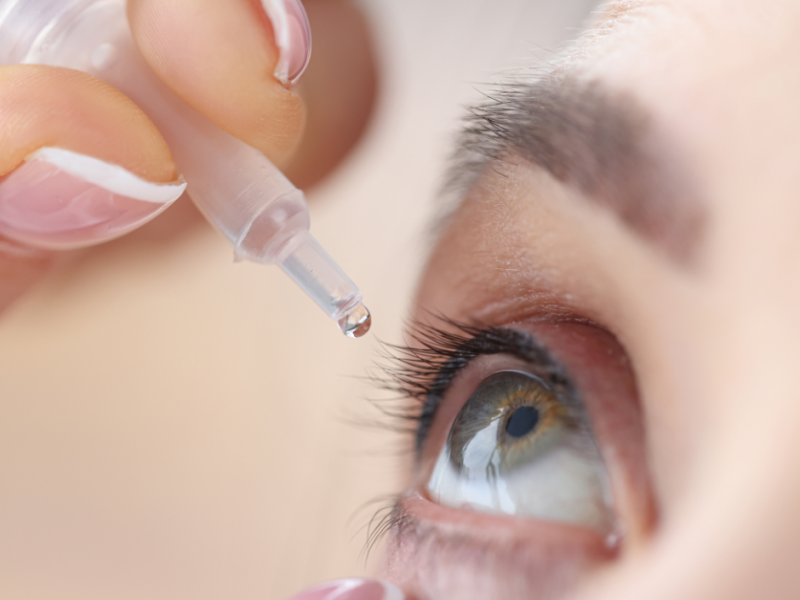Understanding Dry Eye Disease: What It Is and How to Find Relief
Do your eyes feel scratchy, irritated, or tired—especially after long hours on a screen? Does your vision blur or fluctuate throughout the day? If so, you’re not alone. These are common symptoms of Dry Eye Disease (DED), a condition that affects millions of people and can range from mildly annoying to significantly disruptive.

What Is Dry Eye Disease?
Dry Eye Disease occurs when your eyes don’t produce enough tears—or produce poor-quality tears that evaporate too quickly. Healthy tears keep your eyes lubricated, nourish the surface, and protect against infection. When this tear film breaks down, it can lead to irritation, inflammation, and even long-term damage.
DED can be occasional or chronic, but either way, it’s important to identify the root cause and find a treatment that works for you.
Common Symptoms of DED
Dry Eye symptoms can vary from person to person, but often include:
- A gritty, burning, or stinging sensation
- Redness or eye fatigue
- Sensitivity to light
- Blurred or fluctuating vision
- Excessive tearing (as your eyes try to compensate)
Why Does Dry Eye Happen?
There are many reasons Dry Eye Disease develops. Common causes include:
Screen Time: Long hours on digital devices reduce blinking and dry out the eye surface.
Aging: Tear production naturally slows with age, especially after 50.
Hormonal Shifts: Menopause and pregnancy can trigger dry eye symptoms.
Environment: Dry air, wind, and air conditioning all increase tear evaporation.
Health Conditions & Medications: Conditions like Sjögren’s syndrome or diabetes, and medications like antihistamines or antidepressants, can interfere with tear production.

How Is Dry Eye Treated?
Treatment depends on the cause and severity, but often includes:
- Artificial Tears: Over-the-counter drops to relieve mild discomfort
- Prescription Medications: Drops that reduce inflammation or stimulate tear production
- Punctal Plugs: Tiny inserts that help retain tears
- Thermal or Light-Based Devices: In-office treatments for blocked oil glands
- Lifestyle Adjustments: More blinking, regular screen breaks, humidifiers, and eye protection outdoors
The Role of Research in Advancing Dry Eye Care
DED is a rapidly evolving area of research. New therapies aim to go beyond symptom management and address the root causes of the disease. Promising areas of innovation include:
- Biologic Eye Drops: Like serum-based or PRP drops that mimic natural tears
- Targeted Therapies: Medications that focus on the specific source of inflammation or gland dysfunction
- Device-Based Treatments: Like thermal pulsation or intense pulsed light therapy
- Gene Therapy Research: Though more common in conditions like Neurotrophic Keratopathy (NK), gene-based studies may eventually impact dry eye care
- Cross-Condition Research: Studies of diseases like Stargardt disease are helping us understand how tear film and ocular surface health impact broader vision outcomes
How You Can Get Involved
Participating in clinical research helps test new treatments and move science forward. You may even gain access to investigational therapies and receive compensation for your time.
At Ora, we lead ophthalmic clinical trials that explore the latest in eye health—including Dry Eye Disease. While we’re not currently enrolling for a DED study, we expect more opportunities soon.
Want to Stay Informed About the Latest Blog Posts?
Sign up for updates and never miss a post! We’re excited to share more insights on eye health. Our next blog post will be released on the first Monday of every month.